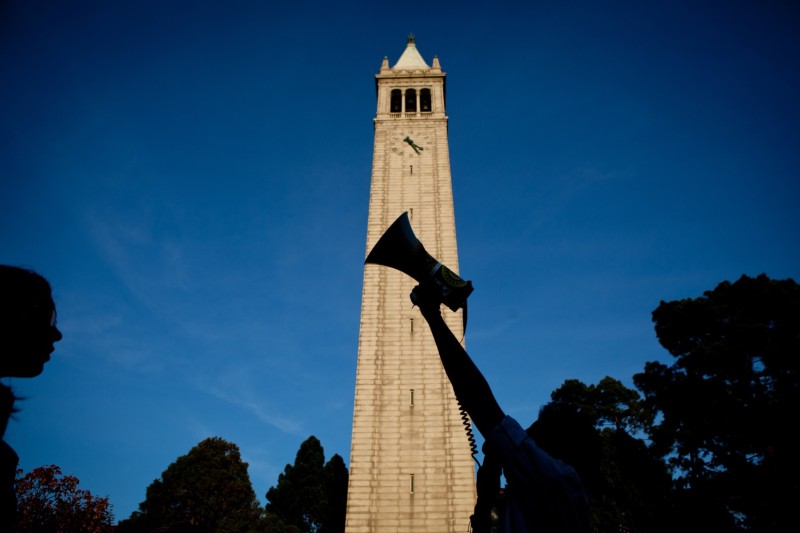These are not the calmest of days for the University of California. Late last week, students protesting tuition increases approved in November shut down entrances to the Santa Cruz campus. And the ongoing standoff between Gov. Jerry Brown and UC President Janet Napolitano over those hikes took another turn recently when Napolitano threatened to freeze enrollment of California residents at all campuses and of out-of-state residents at Berkeley and Los Angeles. The freeze is especially significant given that UC has experienced an increase in applications 11 years in a row.
Despite the protests and politicking, UC Berkeley Chancellor Nicholas Dirks addressed tuition and admission policies during his appearance on KQED's Forum. Here are some highlights:
On UC Berkeley's Increase in Out-of-State Students:
"At Berkeley itself, we have had over the last 10 years just about the same number of California students. We haven't reduced that number at all, even as we have been increasing out-of-state students. So we have roughly 21,000 in-state students from California. And that number has remained, plus or minus very small percentages, the same. We have increased our out-of-state enrollment.
"And of course one thing that out-of-state enrollment shows us is that there are a lot of students across the country, and indeed across the world, who would pay 2½ times as much in tuition without the same kind of advantages of financial aid to attend the University of California at Berkeley.
